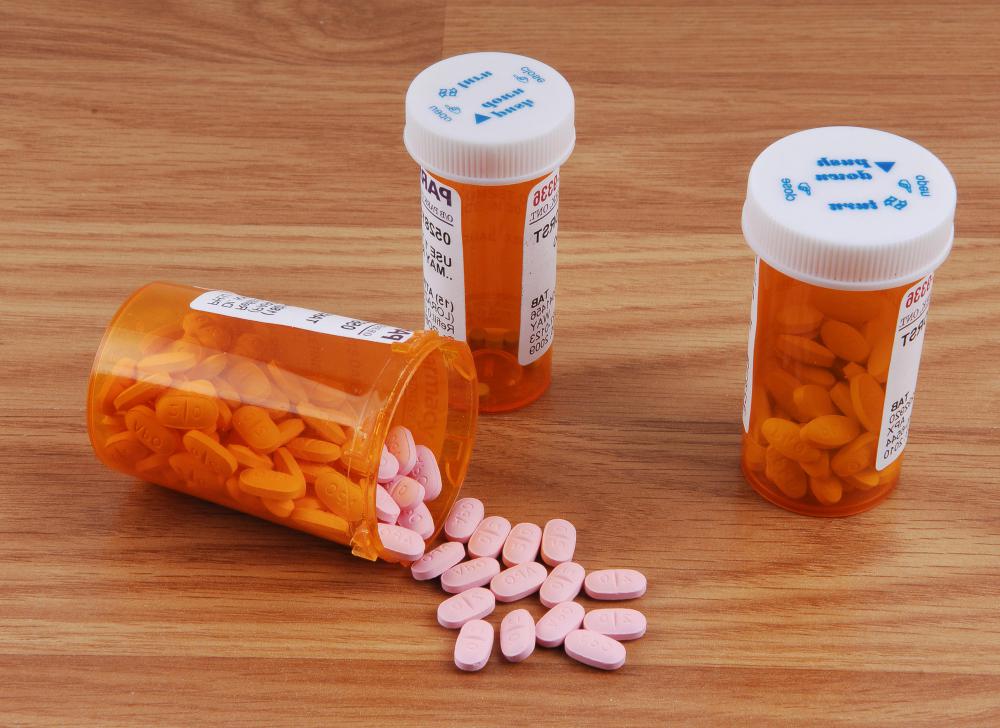At WiseGEEK, we're committed to delivering accurate, trustworthy information. Our expert-authored content is rigorously fact-checked and sourced from credible authorities. Discover how we uphold the highest standards in providing you with reliable knowledge.
What is Pharmaceutical Law?
The creation, sale, distribution, and use of pharmaceutical drugs is closely regulated in most countries. Laws protect drug manufacturers’ research by awarding method patents, and set rules about how and when generic equivalents can enter the market. Governments typically also set safety and testing requirements before allowing drugs to be sold or prescribed. Other laws control how drugs can be marketed, both to potential patients and to doctors, and doctors’ prescription abilities are often shaped by regulations, as well. The intersection of these laws, and all other laws relating to the pharmaceutical industry, creates what is known as pharmaceutical law.
In many ways, the field of pharmaceutical law is an intersection of intellectual property, public policy, and national regulation. On the one hand, pharmaceutical manufacturers need protection for all of the research that goes into creating a pharmaceutical drug. This typically comes in the form of a patent, which is an intellectual property instrument. On the other hand sits consumer protection. If a product is entering the free market as a pharmaceutical drug, governments typically want certain assurances that the product is safe. The government also has an interest in assuring that the drug is appropriately advertised, and in most cases dispensed only by doctors who are qualified to diagnose problems.

A pharmaceutical lawyer generally needs to have a broad understanding of the pharmaceutical industry in order to succeed in the practice of pharmaceutical law. Despite the breadth of the field, however, the actual job of most pharmaceutical lawyers is rather focused. Lawyers typically work for the government, a drug manufacturer, or aggrieved consumers. The contours of each job are markedly different, though each is a facet of pharmaceutical law.

Some lawyers work on influencing pharmaceutical policy from the top. These lawyers typically work for government entities and help craft rules for pharmaceutical testing requirements, safety inspections, and advertising regulations. Licensing requirements and oversight of pharmacists often comes into play as well. Government lawyers are typically responsible for enforcing national laws related to pharmaceuticals, which means that they punish drug companies, pharmacies, and doctors who violate the laws.

Companies also typically retain counsel to handle a variety of in-house pharmaceutical law problems. The primary job of a corporate pharmaceutical attorney is usually patent protection. Patents are very important to pharmaceutical manufacturers. If a competing manufacturer can simply wait until a drug hits he market, then mimic it, the mimicked product can typically be sold at a much less expensive price because the competing manufacturer did not have to invest nearly as much capital in research and development. Patents can cover not only the process by which a drug was made, but also proprietary blends of ingredients, and ingredient percentages in some cases.

Pharmaceutical patents are typically issued for only limited durations as set by law. After a time, competitors can attempt to recreate the drug. The market presence of generic drug equivalents happens once a drug patent lapses. All of this is controlled by pharmaceutical law.
The practice of pharmaceutical law also incorporates elements of personal injury and pharmaceutical ethics. If a patient is harmed by the use of a drug that perhaps should have been better tested or better labeled, the patient may elect to bring a lawsuit against the manufacturer. These kinds of lawsuits typically involve large classes of plaintiffs, and concern the application of pharmaceutical law to real-life situations. Basically any case that involves pharmaceutical drugs falls under the canopy of pharmaceutical law, whether it concerns how the drugs were made, how they were used, or how they were dispensed.
AS FEATURED ON:
AS FEATURED ON:


















Discuss this Article
Post your comments